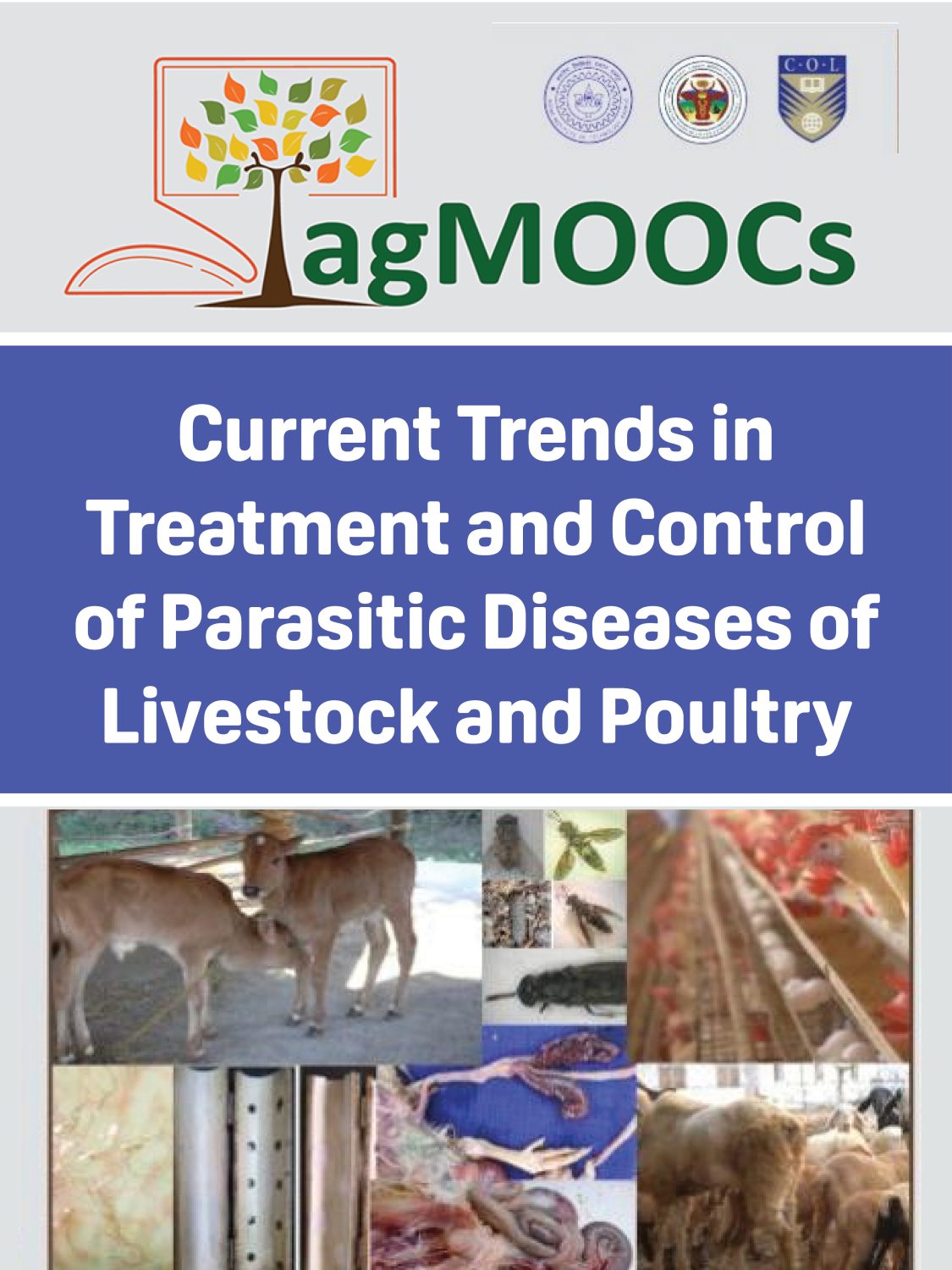Current Trends in Treatment and Control of Parasitic Diseases of Livestock and Poultry

One of the greatest challenges of the century is the need to feed the population with the available limited resources where the only solution is to increase the productive capacity of the eco-systems. Intensification of animal rearing is prevalent to explore the existing resources with maximum efficacy to increase the production per unit. But it creates conducive conditions for parasite transmission and growth. Parasitic infections are transmitted from animal to animal or from animal to human by contact or ingestion of infective larvae or oocysts through contaminated water, soil and food. Parasites reside inside or outside their hosts get host nutrition and blood, thus reduce production and cause financial losses due to control, treatment and mortality costs.
Contents
Book Information
Book Description
One of the greatest challenges of the century is the need to feed the population with the available limited resources where the only solution is to increase the productive capacity of the eco-systems. Intensification of animal rearing is prevalent to explore the existing resources with maximum efficacy to increase the production per unit. But it creates conducive conditions for parasite transmission and growth. Parasitic infections are transmitted from animal to animal or from animal to human by contact or ingestion of infective larvae or oocysts through contaminated water, soil and food. Parasites reside inside or outside their hosts get host nutrition and blood, thus reduce production and cause financial losses due to control, treatment and mortality costs.
Economic efficiency plays a key role in livestock farming. Like in any other activity, farmers must produce at a low-cost to obtain a positive balance with better returns on investment. Economic losses occur not only when animals die, but also when they are unable to perform their regular work, or when they produce inferior meat, milk, wool, hides, or eggs. Parasitic infections can limit and restrict those economic results. Endemic parasites are a major cause for economic loss in animal husbandry, especially in tropical areas and the developing countries.
A proper knowledge of the parasites and vigorous application of this knowledge will help to protect the nation’s livestock industry. The veterinarians and personnel involved in the livestock services need to refresh and update themselves in control of parasitic infestations. Hence this course will be useful for all those involved in animal practice so as to reach those benefits to the livestock and their owners.
Licence
Current Trends in Treatment and Control of Parasitic Diseases of Livestock and Poultry Copyright © by Commonwealth of Learning (COL) is licensed under a Creative Commons Attribution-ShareAlike 4.0 International License, except where otherwise noted.
Subject
Veterinary medicine: diseases and therapeutics

